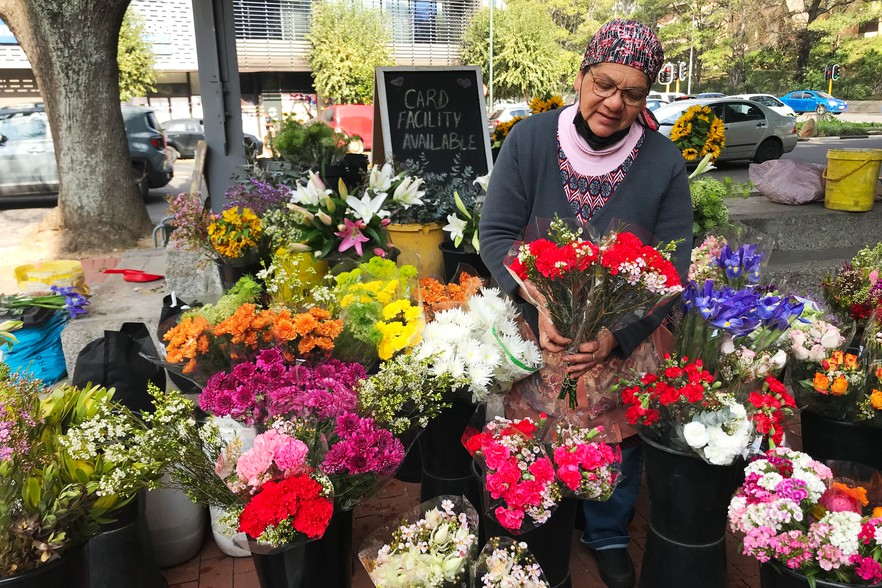
Today’s Heroes: The ‘Ordinary’ Women Who Hold South Africa Together
Wadea Tape was born in Constantia in Cape Town, one of 13 children. At the age of seven, she and her family were removed from the area under the Group Areas Act. At primary school she started selling flowers with her mother in Rosebank, and 40 years later, aged 57, she is still selling flowers […]

Wadea Tape was born in Constantia in Cape Town, one of 13 children. At the age of seven, she and her family were removed from the area under the Group Areas Act. At primary school she started selling flowers with her mother in Rosebank, and 40 years later, aged 57, she is still selling flowers in the same place.
Maria Mahuntsi, 58, from Giyane, wakes up at 2.30am to go sell vegetables at Marabastad market in Pretoria. She has been doing it for 22 years so that she can send money home to her children. For the first few years she worked with her two-year-old daughter on her back and slept on crates at her stall at the market.
Nelisiwe Hlela, 64, a mother of six, lost the use of her legs when she was shot in 1992. Recovering in hospital, she joined a training programme to make leather goods such as Bible covers and bus and train tickets pouches. She has been selling them on the street ever since and has put her children through school.
When her husband was retrenched four months ago, Valentia Molefe moved from Soweto to Lakeview informal settlement in Lawley, Johannesburg. Seeing the hunger in the area, she started sharing what little food she had, making and distributing food parcels. Now, with the help of donations, she has started a soup kitchen which provides cooked meals to about 80 people, mostly children.
Dorcas Bridget Mangwende is a 20-year-old single mother who dropped out of school when she fell pregnant. Watching Youtube and practising on herself and her cousins, she taught herself make-up and now has customers at the home she shares with her mother in Delft.
As South Africa celebrates the heroic women who marched on the Union Buildings in 1956, GroundUp interviewed five women who have overcome the odds. Like millions of others in SA, these “ordinary” women are the heroes of today.
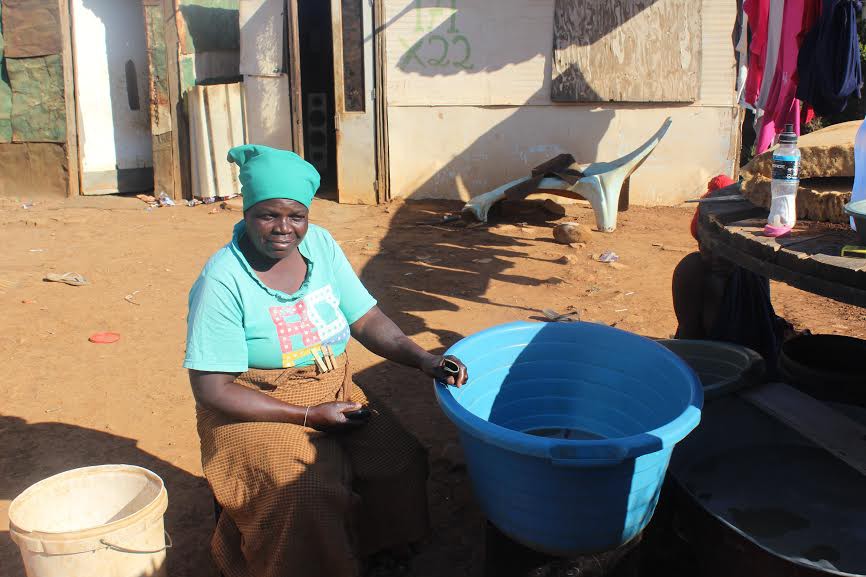
When you were a child, did you think you would have this life as an adult?
Maria Mahuntsi: No. I looked forward to taking care of my parents after having completed school. I attended until grade 3. Back then we were oppressed. Men in the village would say that girls shouldn’t be too educated. My father said if you know how to write your name then it’s enough.
Nelisiwe Hlela: I have always loved sewing and, growing up, I thought I would own my own clothing label shop. I am still happy with what I am doing because it has put my children through school and they are now married and happily living their lives.
Wadea Tape: That’s what my mom did and I thought I’ll go after her. Follow in her footsteps.
Valentia Molefe: I wanted to be a legal advisor. But my father had a feeding scheme when I was growing up. He was a farmer. So maybe I got this from him.
Dorcas Bridget Mangwende : Growing up I wanted to be a pastor. My mother would laugh at me when I held a Bible, wore heels and pretended to preach, sing and do all those things pastors do.
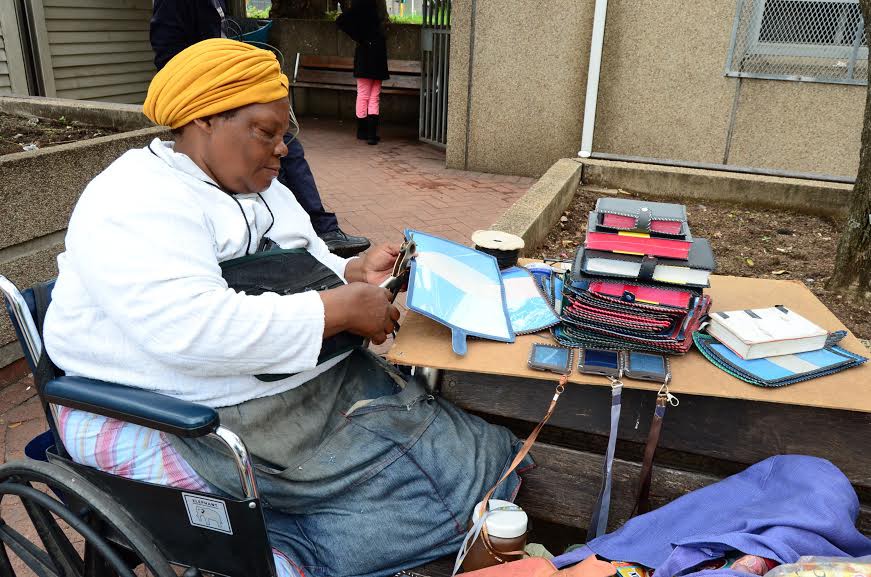
What’s the hardest part of what you do?
Maria Mahuntsi: My day is okay. As long as you have breath then you’re blessed. If you’re able to step outside of your home, then that’s a blessing.
Nelisiwe Hlela: When I have to go somewhere, it is a bit of a mission for me in a wheelchair but I am used to it. I have been travelling with public transport all my life.
Wadea Tape: Winter is very cold and stormy. The wind sweeps right through and there’s no shelter. You’re wet. The flowers are wet. Everything is wet.I am working from hand to mouth. You buy and you make a little profit.
Valentia Molefe: I don’t have pots that are big enough. My stove is also small. So I have to start cooking the night before in order to finish and serve the food the following day. Sometimes, you dish up for someone and then they go home, eat, wash the plate and come back for some more food. This just shows you the need for food in this community.
What do you most enjoy?
Maria Mahuntsi: I enjoy spending time with my children. I’m the happiest around my children and I sometimes take walks in the afternoon so that I clear my head and get ready for the next day.
Nelisiwe Hlela: I have been selling my products here on the street for over 30 years now and it has been amazing. My business is doing very well and people love my work.I enjoy spending time by myself and being in God’s presence.
Wadea Tape: I love selling flowers. This is my passion. I do flower arrangements. I go out to venues to do the flowers. But now there’s no business. People only buy a few flowers.
Dorcas Bridget Mangwende: I enjoy my job and music. I play a keyboard for an hour every day.
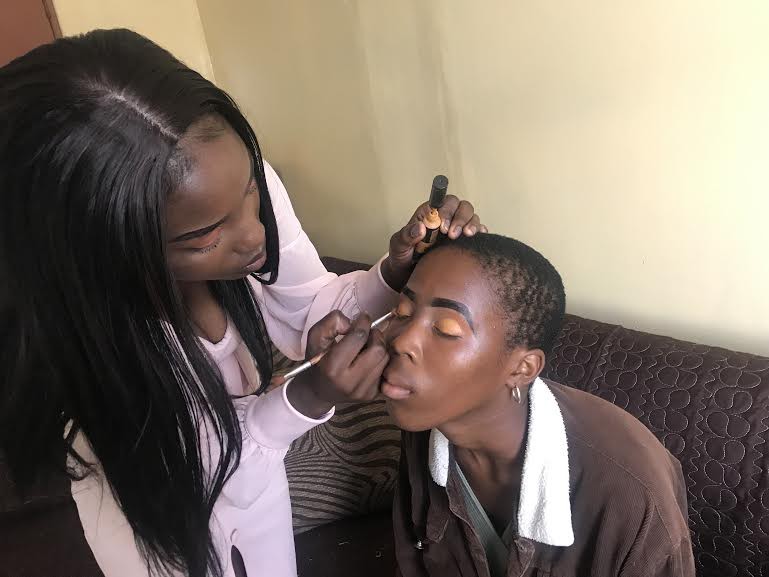
What do you hope for now?
Maria Mahuntsi: I would like to see my children succeed. My heart bleeds when I see my peers driving beautiful cars. To think that I wanted the same for myself, to succeed.
Nelisiwe Hlela: I want to pass on my skills to young people in my community. I was given a chance by strangers and I would like to repay their kindness by doing the same to others.
Valentia Molefe: I would also like to secure more donors so we can get bigger pots, a bigger stove and more food. There are many elderly people in the community who also need food, but at the moment, we are mostly focusing on the children.
Dorcas Bridget Mangwende: I would like to enrol at a beauty therapy academy and build my own business specialising in selling beauty products, offering massage and manicure.
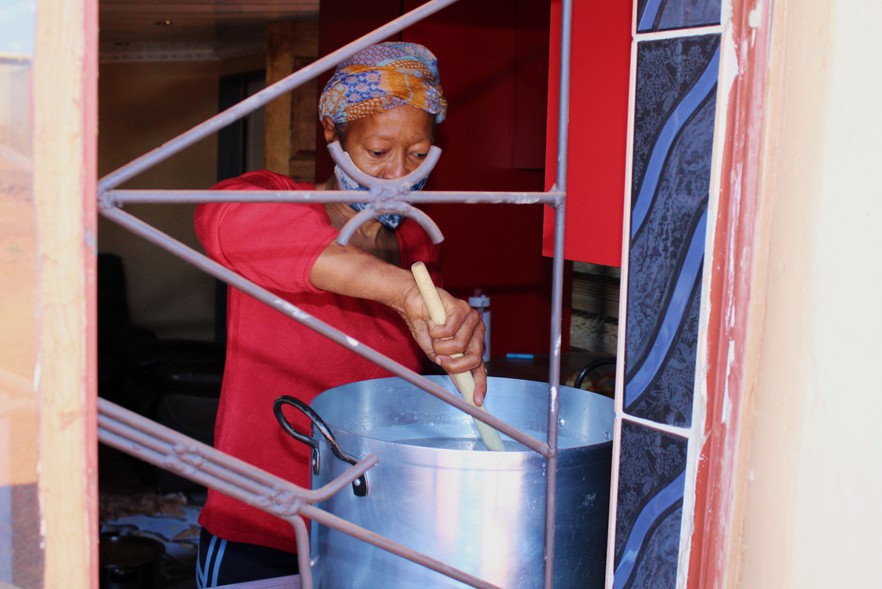
What does Women’s Day mean to you?
Maria Mahuntsi: It reminds me of wise women who fought for our rights. It also represents women who are responsible. Responsible for their children and families. It represents women who are strong and courageous.
Nelisiwe Hlela: Having a day dedicated especially to women means they matter and they make a big contribution to the country. I respect the women who marched to the Union Buildings because they showed that they deserve to be heard and women have as many rights as men in this country.
Wadea Tape: It means a lot. The abuse going on is terrible. People have to look up to the ladies. The ladies do a lot. They’re the fighters.
Valentia Molefe: Women’s Day is all about the importance of women working together to make a difference.
Dorcas Bridget Mangwende: To me, Women’s Day means women who are very strong. Women who cannot be shaken by anything, who stay strong even if there is no one to help them. Women who find their way out of difficult situations to achieve their goals.
Compiled by Ashraf Hendricks, Masego Mafata, Mosima Rafapa, Nokulunga Majola and Tariro Washinyira
Published originally on GroundUp , © 2021 GroundUp
